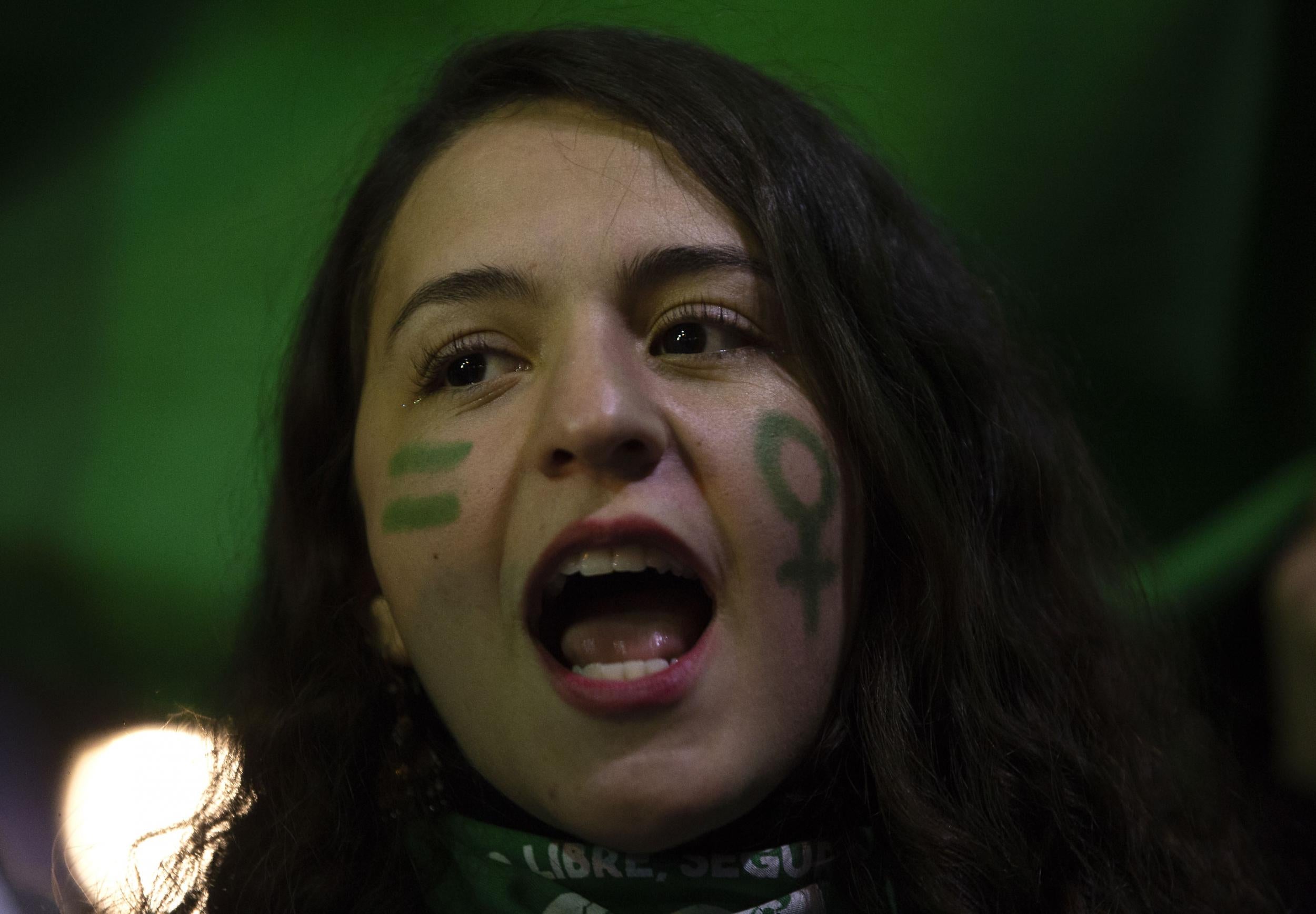Three women stabbed by masked group at anti-abortion protest in Chile
'This is terrorism. I don’t want to call it any other way,' says spokesperson

Your support helps us to tell the story
From reproductive rights to climate change to Big Tech, The Independent is on the ground when the story is developing. Whether it's investigating the financials of Elon Musk's pro-Trump PAC or producing our latest documentary, 'The A Word', which shines a light on the American women fighting for reproductive rights, we know how important it is to parse out the facts from the messaging.
At such a critical moment in US history, we need reporters on the ground. Your donation allows us to keep sending journalists to speak to both sides of the story.
The Independent is trusted by Americans across the entire political spectrum. And unlike many other quality news outlets, we choose not to lock Americans out of our reporting and analysis with paywalls. We believe quality journalism should be available to everyone, paid for by those who can afford it.
Your support makes all the difference.Three women who were protesting in favour of free, safe and legal abortion have been stabbed in Chile.
The women and a police officer were attacked by a masked group of people wearing hoods in the capital of Santiago on Wednesday.
The individuals received medical attention but their injuries were not life-threatening. One of the women was injured in the stomach and the two others in the legs.
Around 40,000 women descended on the city to march, holding signs reading: “Women marching until we are free” and “The rich pay for it, the poor bleed out.”
People who attended the protests said anti-abortion extremists are responsible for the stabbings but no suspects have been arrested.
Ale Silva, a resident of Santiago who is pro-abortion, told Newshub the group were men from a far-right group.
“It very easily could have been me or any of my friends. They were targeted because they were women and were marching, as it so usually happens... pro-lifers stabbing people, the irony,” she said.
She claimed the Chilean media ignored the attack – the country’s chiefly right wing media initially did not cover the stabbings.
While a small far right group known as the Social Patriot movement claimed responsibility for the counter-protest, they denied being involved in the stabbings.
They instead attributed the violence to “anarcho-feminists”.
A spokesperson for Mesa de Accion por el Aborto – one of the groups leading the struggle for access to free abortion in the country – branded the stabbings “terrorism”.
“This is terrorism. I don’t want to call it any other way. When a group wants to intimidate another to keep them from expressing their ideas freely,” Macarena Castaneda said.
Social media users in Chile drew attention to the irony of the attack, given the subject matter of the protest.
“They stab three women in Santiago de Chile during a march to legalise abortion because life matters… But the life of women?” said one.
Erika Guevara-Rosas, Americas director at Amnesty International, condemned the stabbings.
“The violent attack on three women peacefully protesting abortion rights in Chile is absolutely horrifying. Women should be able to stand up for their rights without fear of violence,” she told The Independent.
“Safe and legal access to abortion is a human right. The government’s timid statements on these attacks are absolutely chilling, giving a worrying message that demanding rights represent a risk to people’s lives and integrity.
Women should be able to stand up for their rights without fear of violence
“These attacks are further proof that the level of danger facing human rights defenders worldwide has reached a crisis point. Every day people are attacked, threatened, imprisoned and killed for what they fight for, believe in or simply for who they are.”
Chile was home to one of the most restrictive abortion policies in the whole world until recently – criminalising the practice of it without exception.
After years of campaigning, former Chilean president Michelle Bachelet pushed through a bill to allow the termination of a pregnancy in three cases – when the woman’s life is in danger, when the foetus will not survive the pregnancy, or in cases of rape.
However, the latter is only permitted in the first 12 weeks of pregnancy, or 14 weeks if the girl is under 14 years old.
The bill allowing abortion was approved by the National Congress in August 2017 – becoming law a month later.
Ms Bachelet’s right wing successor, Sebastian Piñera, has fiercely opposed any further reforms. Women’s rights activists have raised alarm bells that his government could roll back reforms.
The recent stabbings echo a troubling trend of violence and harassment against pro-choice activists.
In Argentina – where the Senate is debating a bill to legalise abortion in the first 14 weeks of pregnancy – several videos showing men threatening women for holding green handkerchiefs, a symbol adopted by pro-choice activists, have recently surfaced. Women have been threatened with rape in some cases.
Green is the chosen colour of the pro-choice movement in Argentina, and handkerchiefs are a reference to the history of women’s protest movements in the country.
Abortion in Argentina is only allowed when the mother’s life or health is in danger or when the pregnancy is the consequence of rape. However, doctors are often reluctant to perform abortions due to fear of prosecution.
The number of pro-choice supporters in Latin America has progressively increased since 2015 when protests emerged against gender violence in Argentina – a crime estimated to claim the life of one woman every 30 hours in the country.
Latin America’s draconian abortion policies have led to the needless deaths of thousands of women, according to Amnesty International. Abortion is criminalised or restricted in every Latin American country except Uruguay and Cuba.
Join our commenting forum
Join thought-provoking conversations, follow other Independent readers and see their replies
Comments